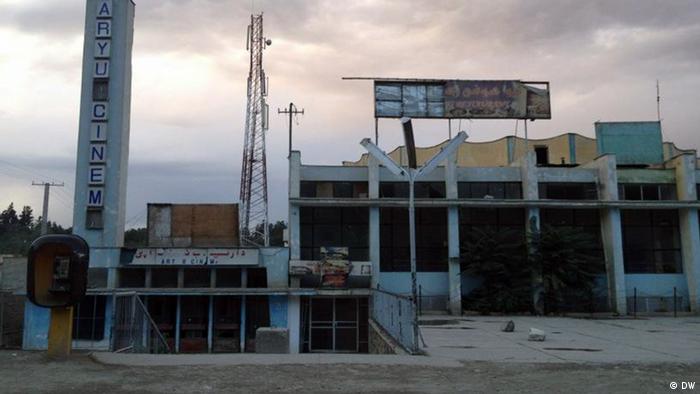M WAQAR..... "A man's ethical behavior should be based effectually on sympathy, education, and social ties; no religious basis is necessary.Man would indeed be in a poor way if he had to be restrained by fear of punishment and hope of reward after death." --Albert Einstein !!! NEWS,ARTICLES,EDITORIALS,MUSIC... Ze chi pe mayeen yum da agha pukhtunistan de.....(Liberal,Progressive,Secular World.)''Secularism is not against religion; it is the message of humanity.'' تل ده وی پثتونستآن
Saturday, October 20, 2012
Afghanistan: a cultural no man's land?
The recent attack on an actress in Afghanistan raises the question: will the country once again become one in which music and film are taboo after international forces leave the country in 2014?
It is already dark as
Sonia sets out for home. She thinks of the relaxing evening she had at Kabul's art festival that took place mid October, as the young actress walks to her car. And then something horrible happens: a man throws powder in her face as he runs past her. Sonia is blinded; she screams in pain as she covers her eyes.The unknown culprit's motive is obvious: to punish Sonia Sarwari for her so-called "un-Islamic" work as an actress on the big screen and in television. Women who manage to become public figures are villanized and condemned by many Mullahs; they are labeled as dishonorable. The 19-year-old Sonia goes to the doctor, who finds her eye is "luckily" only slightly injured. The doctor bandages up her eye; she wears dark glasses to hide it.
As bad as the attack was, Sonia told DW that it hadn't really been that much of a surprise. "I receive threats over the telephone on a daily basis. The people who threaten me say they are going to shoot me or kill me some other way. But this attack here really got to me."
Death threats
The attack on Sonia was not unprecedented. Not long ago, an 18-year-old actress was attacked. Benafsha died as a result of multiple stab wounds in a mosque in Kabul at the end of August. She had been out with colleagues when she was attacked by a group of men. Her colleagues continue to receive death threats. They have decided to keep a low profile.
One of Benafsha's close friends and colleagues, Sahar Parniyan, told DW she had gone to the police chief of Kabul for help, and explained to him that she could not go home for fear of her life.
"But he didn't do anything. He said he wasn't responsible. If the police isn't even willing to help protect us, then what am I still doing in this country?"
Up to the 1990s, Afghanistan had quite a lively cultural cinema and music scene. Poetry and literature were part of every-day life - even for those who couldn't read or write.
But today cinemas are seen as meeting points for drug addicts - they don't attract crowds. Writers censor their own writing and there are no publishing houses. The poet Kawa Gibran was of the opinion that the decades-long war had led to the decay of the country's cultural scene. He feared the withdrawal of international forces from Afghanistan in 2014 might mean the worst yet for artists.
"As of now, it seems it will be bad for us. The international community has lost the war. The Taliban are getting stronger. You can see that by the current distribution of power in government. People are interpreting the consitution however they please."
Artists disappointed in government
The Taliban completely banned music and television. After they were driven out, Afghanistan experienced a cultural rebirth. Films were produced and new songs were played on the radio. But now that the extremists are slowly gaining power again, new restrictions have returned to the country.Many artists and intellectuals have already left the country. Others, such as the well-known musician Ustad Gulzaman, will have to follow. Despite the billions of dollars that had been thrown at Afghanistan in the past few years, Gulzaman said, the intellectual and artistic elite had not received any support at all.
"I love my country and my art. But this government does not care about us. I will have no other choice than to leave so that I can feed my children."
Sonia Sarwari, on the other hand, is not ready to give up just yet. "I am an Afghan woman and I will confront my enemies head-on ... They will not keep me from acting. I will continue to do what I do."
Subscribe to:
Post Comments (Atom)



No comments:
Post a Comment